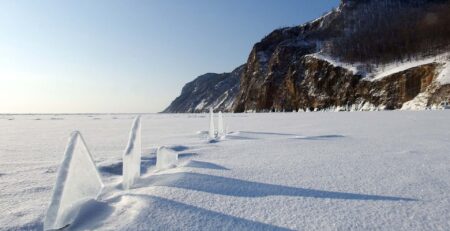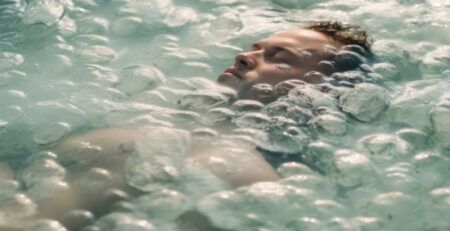The pursuit of clarity and focus is never-ending for professionals seeking a cognitive edge. While most people turn to caffeine or mindfulness apps, there’s another, colder path that’s capturing scientific attention: cold water swimming. Beyond its physical benefits, cold water immersion practice, such as winter swimming, triggers powerful shifts in brain chemistry that sharpen focus, calm the mind, and build lasting cognitive resilience.
Table of Contents
The Immediate Boost: Norepinephrine and Mental Focus
The first cold plunge into icy water triggers a massive sympathetic nervous system discharge, releasing catecholamines such as norepinephrine and epinephrine. While this spike is systemic, its impact on the brain is specific.
Norepinephrine, in particular, is a potent neuromodulator that sharpens focus, heightens attention, and consolidates memory retrieval. This is the neurochemical basis of the hyper-aware, crystal-clear state experienced post-plunge.
A study in Nature highlights how the locus coeruleus, the brain’s main source of norepinephrine, helps regulate focus and alertness — precisely the system activated by cold water immersion.
The Calm After the Shock: Endorphins and Mental Clarity
After the initial jolt, something remarkable happens — a sense of calm and quiet focus replaces the shock. That’s the work of beta-endorphins: endogenous opioids responsible for the potent analgesic and mood-elevating effects often described as the “after-drop high.” This state is characterized not by euphoria alone, but by a reduction in mental “noise” and a quieting of the brain’s default mode network (DMN), which is often overactive in states of anxiety and rumination.
This isn’t just a placebo effect. A study in the Journal of Applied Physiology documented a significant increase in plasma beta-endorphin levels following cold water immersion.
Training the Mind for Resilience
The benefits of cold plunging extend well beyond the first dip. Repeated exposure to controlled cold helps your body and mind adapt — a process known as cold habituation. Over time, this trains your hypothalamic-pituitary-adrenal (HPA) axis to respond more calmly to stress.
This “stress inoculation” leads to a lower baseline cortisol output and a faster recovery from psychological stressors unrelated to cold. This translates directly to improved emotional regulation and cognitive resilience in high-pressure professional environments. A review in Neuroscience & Biobehavioral Reviews explains how adapting to cold stress can make you more resilient to other stressors, from work challenges to daily anxiety.
Breathwork, BDNF, and Neuroplasticity
There’s another layer to the mental benefits of cold exposure. The reflexive gasp and breath-hold response upon immersion, followed by the conscious control of breathing, imposes a powerful form of intermittent hypoxia. This controlled oxygen restriction has been shown to upregulate Brain-Derived Neurotrophic Factor (BDNF). BDNF is a key protein supporting neuroplasticity—the brain’s ability to reorganize and form new neural connections—which is fundamental for learning, memory, and cognitive flexibility. While direct studies on winter swimming are limited, research on related practices, such as breathwork, shows a clear link to BDNF elevation.
The Neurochemical Formula for Mental Clarity
The combination of these acute and chronic effects creates a unique cognitive state. The acute flood of norepinephrine and endorphins provides immediate, sharpened focus and a quieted mental landscape. Habituation to the practice builds a more resilient stress response system, lowering allostatic load. The potential for enhanced neuroplasticity through BDNF signaling offers a long-term foundation for sustained cognitive performance.
Final Thoughts
The mental clarity gained from cold water swimming is not anecdotal—it’s a measurable neurochemical phenomenon. The practice triggers a targeted release of norepinephrine, sharpening focus and alertness, while simultaneously stimulating endorphins that quiet mental chatter and ease anxiety. Over time, repeated exposure trains the HPA axis to respond more calmly to stress, building resilience that extends beyond the cold itself.
Together with the potential upregulation of BDNF, which supports neuroplasticity and long-term brain adaptability, these mechanisms create a powerful foundation for sustained cognitive performance. Far from simple biohacking, cold plunging offers a direct way to engineer a more resilient, focused, and flexible mental state—an accessible tool for anyone seeking sharper clarity and stronger stress regulation












Leave a Reply